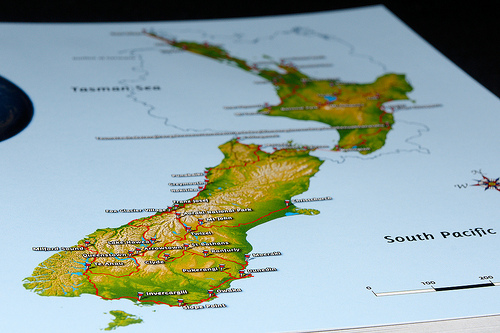Axia NetMedia now looks to NZ NBN


Vodafone has formed an alliance with Canadian company Axia NetMedia to bid for the New Zealand's planned ultrafast broadband project.

(New Zealand Map image by
Marcus Holland-Moritz, CC BY-SA 2.0)
The NZ Government is spending NZ$1.5 billion (AU$1.2 billion) on the ultrafast broadband network, New Zealand's equivalent of Australia's National Broadband Network.
Vodafone chief executive Russell Stanners said the alliance with Axia would enable Vodafone to take part in the ultrafast broadband project as a retail provider.
New Zealand's National Business Review reported that, if Axia and Vodafone were successful bidders, a new company would be created to build network assets and Vodafone would take a stake in this company. By partnering with Vodafone, Axia would not be able to present itself as a pure play network wholesaler.
Vodafone has also been reported to be talking to Vector, which is expected to bid for the Auckland network, and to other parties.
Stanners said mobile companies were one of the biggest users of fibre in the world because they needed to connect mobile sites together.
Axia provides the Alberta SuperNet for the Alberta Government in Canada and had submitted a bid to build fibre-to-the-node for Australia's National Broadband Network. The company is due to report its third quarter result after the market closes on 10 May Canadian time.
The Canadian company has also built similar next-generation networks in France and Singapore. It did not compete with its own customers.
Axia chief executive Art Price said his company wanted to help New Zealanders to achieve the optimal ultrafast broadband outcome.
"The government of New Zealand has set a policy framework that can achieve the desired outcomes," he said.
New Zealand started the separate, rural portion of its broadband plans last month, calling for expressions of interest from providers who want to be part of the $300 million build out to regional areas of the country.
With this money, New Zealand aims to have fibre reaching 93 per cent of rural schools, enabling speeds of at least 100Mbps, with the remaining schools achieving speeds of at least 10Mbps. Furthermore, more than 80 per cent of rural households will have access to broadband with speeds of at least 5Mbps, and the remainder to achieve speeds of at least 1Mbps. The project will also include some upgrading of rural voice services.